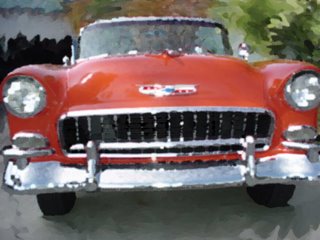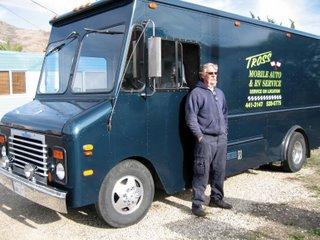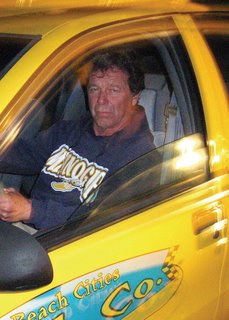Love

A draftee from Portland, Oregon, Vic Faber, laughed and mocked Carter every time he got a love letter from Sally.
‘Sooner or later she’ll send you a “Dear John.” I seen a million like you, Carter. You think she really loves you, but she’ll get lonely, and horny, like all the rest, and in no time she’ll be goin’ at it with some draft dodger.’
Love
Part I
By Dell Franklin
Jerry Carter met Sally McCormick a month before he was inducted into the Army. It was 1966 and he was working at Disneyland as a ride operator (lofty in the employee hierarchy) and Sally was an apprentice tour guide. Sally was petite with pale skin and long brown hair and dancing green eyes and a mischievous, lopsided smile. Jerry was Hollywood, surfer handsome with a deep tan and wavy blond hair.
It was a breathtaking affair. They went at it their first night together and it couldn’t be halted, a runaway train. They couldn’t keep their hands off each other and couldn’t stand to be apart. He made her smile on sight, made her laugh without trying, relished her cuddling up to him and controlling the radio when he drove his cherried-out 1955 Chevy, felt himself rise at the mere brushing of her thigh against his, mind lost, numb to all stimuli but her, and they did it in drive-in theaters, on the hill overlooking town, in a cheap motel room, on the beach near the caves in Huntington Beach; they were like rabbits, rabbits, and then he was inducted and gone to Ft. Ord in Monterey in the dead of winter.
Sally wrote Carter daily. He wrote every chance he could, but the Army kept him busy from 6:30 in the morning until midnight, depriving him and fellow trainees of all former privileges and amenities, the only break from the constant physical and mental harassment being his reading the perfumed letters from Sally.
One Sunday afternoon he had an hour and Sergeant Tull caught him in his bunk gazing at her picture, sniffing her letter.
“You dumb-ass, shit-head,” he growled. “Forget the girl. Sooner or later she’ll send you a ‘Dear John.’ I seen a million like you, Carter. You think she really loves you, but she’ll get lonely, and horny, like all the rest, and in no time she’ll be goin’ at it with some draft dodger, goin’ at it like she went at it with you, and you’ll be crawlin’ around in ‘Nam dodgin’ bullets. Forget her, boy, you’re ours now, not hers.”
Other troops who had girls and wives back home heard the same speech from Tull and all the drill instructors, like it was part of the training. A draftee from Portland, Oregon, Vic Faber, laughed and mocked Carter every time he got a love letter from Sally. He claimed to be thankful he was unburdened with such heartstrings, thankful to be on his own to go whoring, mistrusting 99 percent of all women and maintaining it was a biological impossibility for any woman to be sexually loyal to a man while he was away for two years, especially if they were used to “getting it,” because in that sense women were just like men—needing it and thinking about it; so they broke down and had affairs because the “flesh was weak.”
To Carter it seemed inconceivable Sally could carry on with another man as she did with him, and he was encouraged by the fact his own mother had been loyal to his dad when he was gone during World War II, and he was further encouraged when he re-read letters from Sally who said she missed his voice and laugh and the way he looked at her and touched her and wanted to marry him when he got discharged, and prayed every night he wouldn’t get sent to Vietnam.
After the sixth week of basic, he got a weekend pass. His parents wanted to come up and see him but he lied and told them he had extra duty and wouldn’t be available, and Sally drove up in his Chevy and they went directly to a motel in Monterey and stayed there the whole time, Sally at first crestfallen at the sight of his pale skin and shaved head, but loving his harder body, for he was in the best shape of his life.
Two weeks later he was home for a 15-day leave and his parents were furious when he spent all his time with Sally. They became engaged, though he had no money for a ring. They went to the beach every day and made kissy face, and at night they did it in the drive-in or on the hill overlooking town or in a motel room or down at the caves on the beach, and then the 15 days were over—gone so fast—and he left for Fort Sill in Oklahoma for artillery school.
Ft. Sill was a blistering hot, barren hellhole, and all Carter did was shoot rockets and cannon and after a while he knew only the stench of powder and a steady ringing in his ears from explosions. He was told this would go on until his discharge, so get used to it, and here he had almost two years to go, the only solace being Sally’s letters, which came nearly every day, like clockwork, telling him how much she missed and loved him and how deeply it hurt to be away from him and how she thought about him every waking moment and could hardly sleep or keep her mind on work, and how she wished more than anything in the world she could just be in his arms and have him touch her and make love to her the way no man ever had or ever would; she knew their love was powerful enough to stand any test, so whole, so pure; it was meant to be. They were, like, connected….
Vic Faber his bunkmate—cynical, a drinker and carouser—was at Sill, too. The training and discipline became more intense because of ‘Nam and everybody talked of going there. Jerry was hoping to get stationed in the western United States, so Sally could visit him, or he could come home on leave, but instead they sent him and Faber to Baumholder, Germany, a duty post described by his first sergeant as absolutely the worst shithole in the entire United States Army that was not a combat zone, a place so grim and depressing that guys who hated the Army actually re-upped for ‘Nam just to get away, so they wouldn’t go nuts and end up in the stockade or loony bin. Word was the sun never shined in Baumholder, even in summer, and all you did was soldier, soldier, soldier, because it was a strike unit for NATO vigilance against the Soviets. What’s more, the local Germans resented GIs, and there was nothing to do but drink, fight and whore.
Top wasn’t exaggerating. Carter and Faber got there in late August and it was already cold, damp, glum, the base a feudal fortress, like a prison. Troops seemed edgy, depressed, sour, and they bitched about everything and were scornful toward newcomers, warning them they were in for the most terrible time of their lives, lording it over them that THEY were short-timers and would be home in a few months while THEY went nuts in Baumholder. They wanted nothing to do with Carter and Faber. They played cards, drank, argued, screamed at each other, threatened to kill each other, fought viciously.
These men were changed, different, almost demented, drinking with a vengeance, full of bitter hatred toward their situation. Carter stayed away from them, buddied up with Faber and wrote his Sally, reading and rereading her letters when he wasn’t out on maneuvers or on post polishing his brass and spit-shining his boots and shoes and cleaning his equipment, writing her long, passionate letters, the reading of her letters and the writing of his own being the only trace of civility in this new environment, everything else dark, the winter coming quickly, the first real cold and snow held ever experienced, and it seemed the sun never did shine, and they were always out in the miserable elements, always being yelled at and ordered around, and they began going miles and miles away on long field problems and war games in a wrath-of-God placed called Grafenvoer, where they met up with other battalions, Grafenvoer even uglier and grimmer than Baumholder, staying in these ugly cinder-block huts warmed by burning coal, spending all day and every day marching around in mud and snow and sleet, shooting off rockets and cannon, going deaf, shivering, teeth-chattering cold, sniffling, coughing, hacking, weak, sick, pushed to the breaking point, eventually released from this abject drudgery, only to return to Baumholder, where everybody drank and fought and whored, Faber soon finding his own private whore, a sultry, stacked blond, Faber telling Carter he ought to try her friend, they could party together, for this was the only way to keep ones sanity in this fucking maelstrom, but he still had his letters from Sally, though by around the holidays they were no longer coming on a daily basis.
Nor were they as intense and intimate. At first she had ended all letters with “I LOVE YOU.” Then it was “All my love.” By the holidays, it was “Love, always.” The letters became shorter and she apologized for being so busy with her job, and these letters seemed chatty and less warm and passionate, there was less perfume, and then she began ending her letters with “Love,” and, finally, “Love yah.”
Carter began to get nervous. Then the letters ceased coming. He waited and waited—one week, two weeks, three weeks, a month. He thought about what Tull had said, and about Disneyland in general. The place was a meat house, a body exchange. Everybody who worked there was young and attractive and “looking” for somebody—a breeding ground for the goddamn mating ritual; young, eligible people in the prime of their sexuality; and word from the states was that there was this new drug-induced movement of sexual freedom, and all these aspects began to torture Carter, and so he drank, and began calling Sally long distance, but she was never home, only this bitchy roommate, who was always evasive when he asked her how Sally (who had his car) was doing and why wasn’t she writing him and was she seeing another guy. Goddamn you, you bitch, answer me! She called him an asshole and hung up.
He couldn’t afford to keep calling her on the pittance he made. He brooded and felt himself unraveling. How could this happen? They had been so close. No man had ever given her orgasms as he had. No woman had ever gotten him as hot as she did. They were born to be together. How could she fall in love and have the same feelings for some fucking draft-dodger? Some manicured very cool pretty boy from Disneyland, while he was bogged down in the worst shithole on earth, jacking off to the sight and scent of her letters and picture whenever he could find the time and privacy. He woke up in the middle of the night with visions of Sally sucking another man’s cock, of Sally gleefully straddling another man and creaming as she had upon him….
Faber had no mercy for Carter and explained that most girls didn’t send “Dear John” letters when they were getting it steadily from a new beau, because they felt guilty, so it was easier to let things slide away and slowly dissolve, especially when you were 6,000 miles away and there wasn’t a goddamn thing you could do about it anyway.
Carter told Faber he was going to write Sally a different kind of letter than he had the past month—begging, pleading, lovelorn. He was going to write her a letter calling her a lying, phony, disloyal, two-timing cunt! Faber urged him not to write such a letter, but to “ride things out” and accept her weakness and then, when he got home, revenge-fuck her. But “dammit,” Carter claimed, he LOVED her. Faber laughed, patted his back, took him out and got him drunk and Carter fucked a whore and it was no good, he couldn’t stop thinking about Sally. He was bitched, dammed, felt empty and more miserable than ever, and then he got a letter from a pal out at Disneyland telling him that Sally was shacking up with a big shot at Disneyland, a guy named Lancaster.
Carter felt himself go weak all over, as if palsied. He scribbled off a letter telling Sally he knew all about Lancaster and just could not believe she’d dump him while he was 6,000 miles away for an asshole like Lancaster, and he asked her if she was getting it as good from him as she was from him, Carter, and if she was cooing all the same lovy-dovy bullshit she’d been cooing to him, Carter, and he hated her now, but could not stop thinking of the two of them going at it the same way he and Sally went at it, and in the same places, like rabbits, all these thoughts gnawing at him until they became obsessions…and he marched around and blew off rockets and cannon in a daze, detached, always thinking only of Sally and Lancaster, crying inside, crying quietly into his pillow at night, wanting to go AWOL and borrow money and take a plane back home and find the two of them together and kill them both with his bare hands!
He told Faber of this plan and Faber told him he was crazy, around the bend, to calm down, that he was stupid to eat his heart out and pine over Sally, that it was a good thing he found out what kind of woman she really was now, before marrying such a slut, and here he was depriving himself of local whores, but “no, no, you don’t understand, Faber, I LOVE the bitch, I can’t help it.” Faber horse-laughing, implored Carter to meet this whore who was a friend of his steady, and so Carter got bombed and did so, and it did no good, made him feel miserable and empty and more alone than ever, so he wrote Sally a new letter, calling her a whore, cocksucker—stupid cunt!— bitch, witch, pig-gash, rotten piece of shit, offal, human garbage, a worthless immoral slut no man could ever trust…a page and a half of horrible insults, stuff so vile Faber started to read it and threw it down, telling Carter he was cuckoo and needed help.
Two weeks later he got a response in a manila envelope. He tore it open. No letter. Just two color photos. The first was of Sally facing him naked, giving him the finger, with Lancaster laughing in the background. The second was of her straddling Lancaster. Carter found himself screaming and howling like a wounded coyote. Ahhhhh. AAHHHHHH!
Like he’d been shot. Faber came over to glimpse the photos, whistled when Carter snatched them away and began beating them on his bunk, punching them, yelling Sally’s name while troops came around to observe, calling Sally as loud as he could a lousy bitch whore cunt cocksucker aaaahhhh!” Faber brought him a bottle of whiskey which he drank down like a beer, and then he took the photos and a big blown up one of Sally taped to the inside of his wall locker and those of her in his album (several of them embracing on the beach), and he took these photos and all her perfumed letters and tore them into little shreds and took the remains to the latrine and burned them and pissed on the ashes while everybody looked on and laughed, drinking, having a big time.
***
Carter went on a bender to end all benders. He ceased caring about his appearance and welfare and fucked up his gear and screwed up his job. He considered re-upping for ‘Nam it if allowed him a 30-day leave so he could go home and beat Sally and Lancaster to death. He muddled through maneuvers and got gigged and reprimanded and went to town every night on money sent to him by his parents and brother and drank and whored with a vengeance. He got in several brutal, vicious fights that resulted in a broken nose, chipped front tooth, and a 23-inch scar on his scalp and forehead from a bottle someone busted over his head. He received a double Article 15 and was restricted to post for a month, doing every shit detail in the manual, which was probably better than going out to Grafenvoer for war games and maneuvers and blowing off rockets and cannon, but he was also an object of humiliation, a sad sack, a Beetle Bailey cartoon character, a joke, the guy who got the naked pictures of his babe back home fucking another man, and the worst part of the whole rotten ordeal was that deep inside he still LOVED her, oh goddammit he did, couldn’t get her out of his mind, couldn’t believe this was all actually happening, and still loving her made him hate all men and women, because all women were untrustworthy whores like Sally and all men were out to fuck Sally, they were all out to fuck him over and make his life miserable, people like Tull and Faber were right—right about everything.
When his restriction was up, he and Faber went to town and his girl, Bridget, introduced Carter to a 35-year-old blonde Amazon woman named Heidi. Built. Not beautiful or pert, but handsome—an air of take-charge authority about her. She sized Carter up, touching the raw scar on his forehead. She didn’t flirt. She had a harsh voice. She had money from being a big-time hooker who sat in the windows in Hamburg. She liked Carter. Flattered him. Pampered him. Treated him like a king. Made him feel like a man, yet had a way of ordering him around like a little boy, a bold and domineering Fräuline indeed, who took charge of their love-making, bringing to Carter a new and different kind of pleasure that would seem foreign to shallow, unimaginative Sally. Heidi seemed to know his needs, and after a while it seemed he belonged to her, became addicted to her, and all this made Baumholder and Grafenvoer and rockets and cannon and constant noise and the stench of powder and barracks life bearable, and he was a short-timer now, over the hump, just six months to go, the worst over; they could not do any more to him than they already had.
Faber and Bridget and Heidi and Carter drove to Munich in Heidi’s Mercedes for Octoberfest, Heidi in charge of rooms and where they went and ate and how they spent their days, and they drank in the gigantic beerhouses and rocked with the Germans and celebrated and fucked at night like rabbits, Heidi’s tough skin smelling of lilac, her pussy perfumed, and before he knew it Carter was convinced he could not live without her and wanted to marry Heidi and take her home…yes, yes, that would show Sally. Heidi would eat her alive, she was a real woman, not some little girl.
Faber and Carter took 30 days leave before their discharges, and set off for Paris and then Barcelona where they shacked up with more whores and drank and partied, Faber advising Carter against marrying Heidi, telling him he was crazy to marry a prostitute who was 10 years older, and that he shouldn’t be like so many other GIs in Germany who weakened and married prostitutes and took them home to America because they couldn’t deal with a couple years of loneliness and misery. Faber advised him to ride it out, go back home and get his job back at Disneyland and fuck all the pretty girls there. So, when he returned to post, he stayed there and avoided Heidi, hiding when she strode onto post searching for him; he never called her, just as Faber eluded Bridget, and they took the same bus from Baumholder to Frankfort and flew the same plane to New York, drinking the whole time, and then Faber flew to Portland and Carter flew to L.A., where his parents picked him up and drove him to Anaheim. He wasn’t home half a day when he infuriated his parents by taking their car so he could go find Sally. He heard she was a tour guide at Disneyland and lived with the same crow in an apartment complex in Anaheim. He drove over and saw his 1955 Chevy parked in the underground lot. He half expected her to come out with Lancaster, holding hands. He would kill both of them. He stood for an hour, leaning against his car. Then he saw her—hair still long and brown and lustrous. Swathed in a dark turtleneck sweater, her hard little titties on the high ribcage perked right up, her pronounced bottom merging with her slightly swayed back as she moved her hips in rhythm on high heels. His heart literally burned in his chest. She saw him. Stopped in her tracks, almost fainting, beside the Chevy. Carter wore OP swim trunks, Hawaiian shirt and huarachis, a California boy once again.
Her head tilted. He tried to appear stern but felt his nearly two-year storehouse of anger melt away as Sally’s mischievous, lopsided grin spread across her face. Carter’s legs weakened and his mind stalled. No words came to him. She moved toward him, tentative, stopped again. Her face changed. Tears welled in her eyes. She reached for his face, her hand ceasing in mid-air, inches away. “Oh darling, my poor darling,” she croaked, crying now. “What happened to your poor little face? What did they DO to you?”
He took her hand, ran her fingers along the jagged scar on his forehead, and smiled, showing her his chipped in half front tooth. §
Dell Franklin is publisher of The Rogue Voice. He can be reached at publisher@roguevoice.com.








